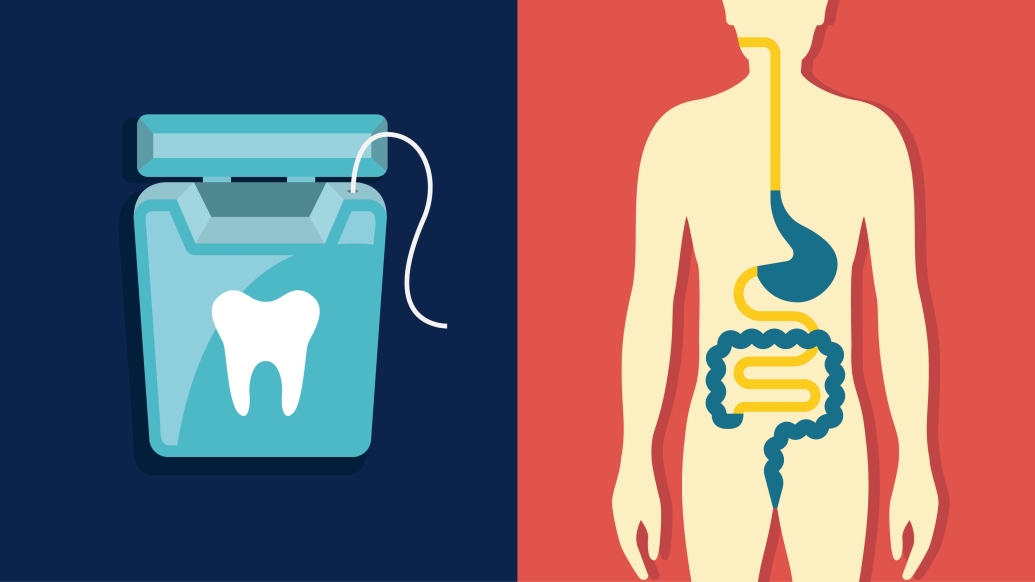Gingivitis, the common gum disease, might be associated with esophageal cancer, according to a recent study.
1:41 PM
Author |

Regular brushing and flossing might be even more important than you thought.
According to a January 2016 study published in Infectious Agents and Cancer, the bacteria P. gingivalis, which is responsible for gum disease, is also present in the esophagus in 61 percent of patients with squamous cell esophageal cancer.
The bacteria P. gingivalis is commonly found in the mouth and is responsible for forming the plaque and tartar that contribute to gum disease (gingivitis) and tooth decay. Gingivitis can be prevented with regular tooth brushing and flossing, as well as the use of antiseptic mouthwash.
Esophageal cancer, or cancer in the muscular tube that connects the throat to the stomach, is the 10th leading cause of cancer death in the U.S. Each year about 16,000 Americans are diagnosed with it. It's difficult to detect and is most often treated with radiation, chemotherapy or surgery.
Rishindra Reddy, M.D., a University of Michigan Health System thoracic surgeon who was not involved in the study, estimates that squamous cell esophageal cancer makes up no more than 10 percent of esophageal cancer in the U.S.
Although, he adds, people with squamous cell esophageal cancer are statistically less likely to get the needed surgery to remove it.
Globally, however, due to differing exposure to risk factors, about 40 percent of esophageal cancers are squamous cell, which generally affects the upper portion of the esophagus. Most of the remaining 60 percent are adenocarcinoma, which tends to affect the lower portion of the esophagus and is often associated with gastric reflux — or as it's commonly known — heartburn.
I suspect that active periodontal disease could relate to the development of esophageal cancer, but also could relate to your outcomes after surgery or after other treatments for esophageal cancer.Rishindra Reddy, M.D.
A new link
Researchers who conducted the study say this was the first time gingivitis was found to be associated with esophageal cancer. If the P. gingivalis bacteria does turn out to increase the risk of cancer, improved oral hygiene and treatment with antibiotics might be effective in preventing it.
Reddy cautions that this particular study doesn't prove a cause-and-effect relationship between gingivitis and esophageal cancer.
But past research on gingivitis and general oral health does make it clear that gum disease can increase the risk of heart disease and stroke, as well as the risk of pneumonia after certain surgeries, including esophageal surgery.
"There is a lot of data that better oral health will impact your overall health and that it could affect not only the development of esophageal cancer, but also how you respond to esophageal cancer treatments, including surgery," he says.
"I suspect that active periodontal disease could relate to the development of esophageal cancer, but also could relate to your outcomes after surgery or after other treatments for esophageal cancer," Reddy adds.
Further research is necessary to better understand the connection.

Explore a variety of healthcare news & stories by visiting the Health Lab home page for more articles.

Department of Communication at Michigan Medicine
Want top health & research news weekly? Sign up for Health Lab’s newsletters today!





